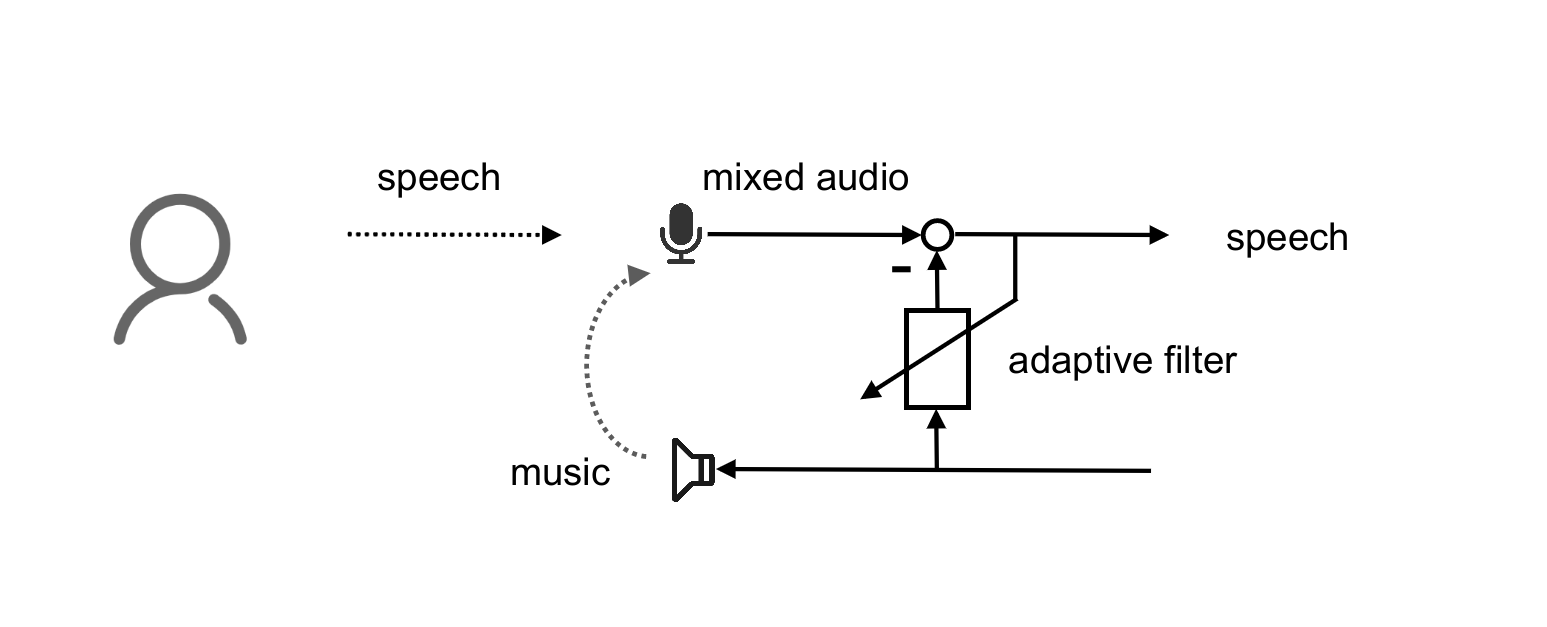Acoustic Echo Cancellation¶
In a smart speaker, the algorithm Acoustic Echo Cancellation (AEC) is used to cancel music, which is played by itself, from the audio captured by its microphones, so it can hear your voice clearly when it is playing music.

The open source library speexdsp has a AEC algorithm. There are two examples to use it in Python and C.
using AEC in Python¶
pip3 install speexdsp-
create a python script named
ec.py"""Acoustic Echo Cancellation for wav files.""" import wave import sys from speexdsp import EchoCanceller if len(sys.argv) < 4: print('Usage: {} near.wav far.wav out.wav'.format(sys.argv[0])) sys.exit(1) frame_size = 256 near = wave.open(sys.argv[1], 'rb') far = wave.open(sys.argv[2], 'rb') if near.getnchannels() > 1 or far.getnchannels() > 1: print('Only support mono channel') sys.exit(2) out = wave.open(sys.argv[3], 'wb') out.setnchannels(near.getnchannels()) out.setsampwidth(near.getsampwidth()) out.setframerate(near.getframerate()) print('near - rate: {}, channels: {}, length: {}'.format( near.getframerate(), near.getnchannels(), near.getnframes() / near.getframerate())) print('far - rate: {}, channels: {}'.format(far.getframerate(), far.getnchannels())) echo_canceller = EchoCanceller.create(frame_size, 2048, near.getframerate()) in_data_len = frame_size in_data_bytes = frame_size * 2 out_data_len = frame_size out_data_bytes = frame_size * 2 while True: in_data = near.readframes(in_data_len) out_data = far.readframes(out_data_len) if len(in_data) != in_data_bytes or len(out_data) != out_data_bytes: break in_data = echo_canceller.process(in_data, out_data) out.writeframes(in_data) near.close() far.close() out.close() -
play a music (for example,
music.wav) and record it asrec.wav, and runpython ec.py rec.wav music.wav out.wav.
Note: only mono music is supported. To get a good result, music.wav and rec.wav should be aligned.
using AEC in C¶
See ec